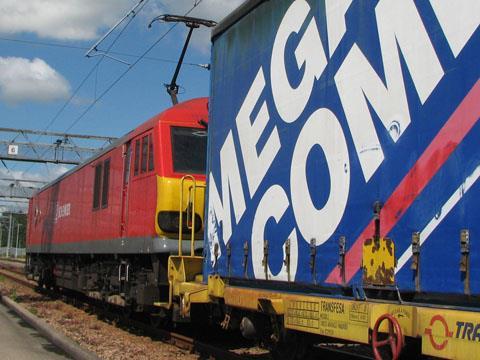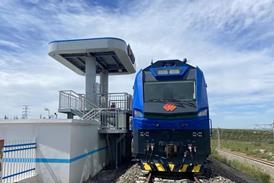
INTERNATIONAL: Greater private sector investment in rolling stock is expected following the adoption of a new protocol on the ownership of railway assets, which will come into force after sufficient countries sign up over the coming months.
Adopted in February 2007, the Luxembourg Protocol to the 2001 Cape Town Convention on International Interests in Mobile Equipment is designed to increase the pool of capital finance available for rolling stock investment. It has been drawn up by the Rail Working Group, established at the request of the Roma-based International Institute for the Unification of Private Law (UNIDROIT).
A similar protocol covering the aviation sector has been in operation for some years, and the development of a protocol for the rail sector is supported by the International Organisation for Carriage by Rail (OTIF).
RWG Chairman Howard Rosen explained to representatives of financial institutions and rolling stock leasing companies at a meeting in London on January 27 that the protocol had been adopted by the European Commission, Council and Parliament, paving the way for EU member states to sign up. Germany, Italy, Switzerland, Luxembourg and Gabon have already done so, while the UK, Belgium, the Netherlands and Sweden have announced their intention to sign it during 2016. More than 42 countries and 12 international organisations around the world are backing the initiative.
The Luxembourg Protocol creates a world-wide legal framework to recognise and regulate the security interests of lenders, lessors and vendors of mobile railway assets. It covers all categories of rail guided vehicles from high speed trains, multiple-units, locomotives and wagons to metro, light rail, airport peoplemovers, autonomous Personal Rapid Transit ‘pods’ and even rail-mounted cranes. By reducing risk, the protocol is expected to facilitate much greater private investment in both international and domestic markets.
According to a study of 370 recent rolling stock investment projects in Europe, undertaken for RWG by Roland Berger, 82% of all projects in 2011-13 were funded by the public sector, amounting to €11·6bn. Only 12% by value was privately financed, as many of these contracts were for small builds. Noting that the UK, Germany, the Netherlands and Sweden accounted for a majority of the privately-funded schemes, Rosen told Railway Gazette that there was a ‘clear correlation’ between liberalisation of a country’s rail market and increased private investment.
To support the protocol, RWG has also initiated the creation of an International Rail Registry, which will enable financiers to register their interest in specific vehicles. This will require the development ‘for the first time’ of unique global identifiers for all rolling stock, The registry is to be developed by Luxembourg-based company Regulis SA, a subsidiary of the international facilities group SITA, which already operates the International Aircraft Registry through a similar subsidiary, Aviareto Ltd.
The protocol would apply to financing raised in any country which had adopted it, regardless of where the assets are used. Rosen suggested this could offer economic advantages to financing institutions based in those countries which are early adopters.

















